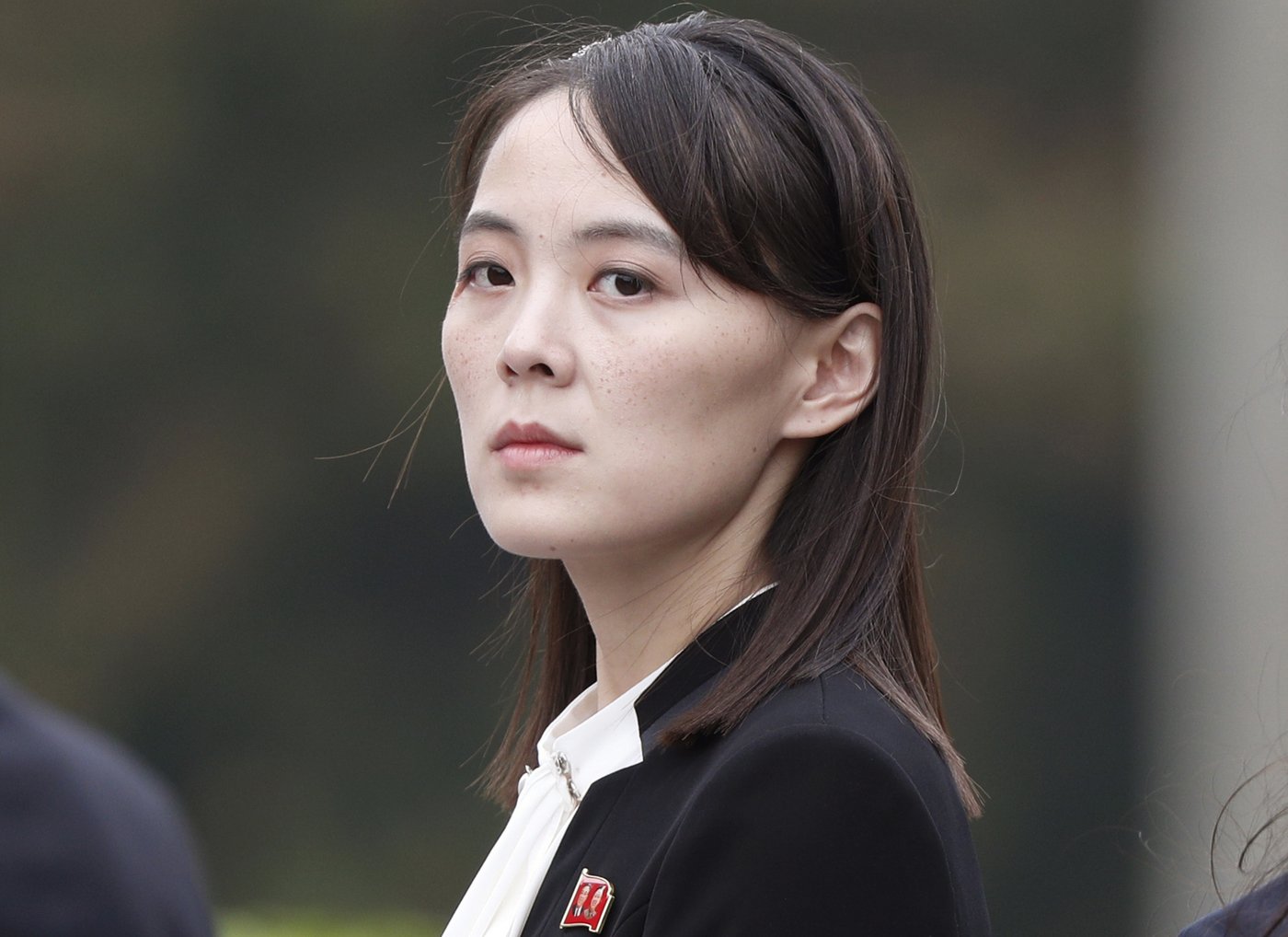Elevate your local knowledge
Sign up for the iNFOnews newsletter today!
Sign up for the iNFOnews newsletter today!
Selecting your primary region ensures you get the stories that matter to you first.

SEOUL, South Korea (AP) — The powerful sister of North Korean leader Kim Jong Un on Thursday dismissed South Korean claims that the North is removing some of its loudspeakers along the inter-Korean border, mocking the government in Seoul for clinging to hopes of renewed diplomacy between the war-divided rivals.
South Korea’s military said over the weekend that it had detected the North removing some of its loudspeakers, days after the South dismantled its own front-line speakers used for anti-North propaganda broadcasts in a bid to ease tensions.
Kim Yo Jong reiterated previous North Korean statements that it has no immediate interest in reviving long-stalled negotiations with Washington and Seoul, citing an upcoming joint military exercise between the allies as proof of their continued hostility toward Pyongyang.
South Korea’s Joint Chiefs of Staff did not disclose where it spotted the North removing some of its speakers. The North Korean speakers that have been visible from civilian-accessible border areas in the South were still seen by Associated Press photojournalists after the military’s announcement.
During a Cabinet meeting Tuesday, South Korea’s new liberal President Lee Jae Myung described the North’s alleged steps as a “reciprocal measure” and expressed hope the Koreas could “gradually reopen dialogue and communication.”
Kim accused Lee’s government of misleading the public, saying that North Koreans “have never removed loudspeakers installed on the border area and are not willing to remove them.”
When asked about Kim’s comments, South Korea’s Joint Chiefs of Staff spokesperson, Col. Lee Sung Joon, maintained that the South’s military had confirmed the removal of some North Korean speakers and cautioned against “being easily swayed” by North Korean statements with political intent.
“It has always been the case that North Korea often makes claims that aren’t true,” he said.
South Korea’s Unification Ministry, which handles inter-Korean affairs, said in a statement that Seoul will continue to pursue “sustained steps” to improve relations but acknowledged that the process will require patience.
No interest in talks with the US
Kim Yo Jong also dismissed South Korean media speculation that the North may use this week’s planned meeting between Russian President Vladimir Putin and U.S. President Donald Trump to convey a message to Washington via Moscow.
“Why should we send a message to the U.S. side,” she said, adding that the North has no interest in talks with the Americans.
Since Russia’s invasion of Ukraine in 2022, North Korea has made Russia the priority of its foreign policy and has sent thousands of troops and large supplies of military equipment, including artillery and missiles, to help fuel Russia’s war.
North Korean and Russian state media said Wednesday that Kim Jong Un and Putin held a phone call to discuss their deepening ties and war efforts against Ukraine.
Russia’s TASS news agency said Putin also shared with Kim information about his upcoming talks with Trump in Alaska on Friday, but the North Korean reports did not mention the Trump meeting.
Kim Yo Jong had also released statements in July dismissing Washington and Seoul’s stated desires to restart diplomacy aimed at defusing the North’s nuclear program, which derailed in 2019 following a collapsed summit between her brother and Trump during his first term.
In recent months, South Korean border residents have complained that North Korean speakers blasted irritating sounds, including howling animals and pounding gongs, in a tit-for-tat response to South Korean propaganda broadcasts.
The South Korean military said the North stopped its broadcasts in June, after Lee ordered to halt South’s broadcasts in his government’s first concrete step toward easing tensions between the war-divided rivals.
The South’s military began removing its speakers from border areas last week but did not say if they would be redeployed if tensions flared again.
The issue of loudspeakers
North Korea, extremely sensitive to any outside criticism of its authoritarian leadership and its third-generation ruler, had seen South Korea’s anti-Pyongyang propaganda broadcasts as a major provocation.
The South’s previous conservative government resumed daily loudspeaker broadcasts in June last year, following a yearslong pause, in retaliation for North Korea flying trash-laden balloons toward the South.
The speakers blasted propaganda messages and K-pop songs, a playlist designed to strike a nerve in Pyongyang, where Kim Jong Un has been pushing to eliminate the influence of South Korean pop culture and language among the population, in part of attempts to strengthen his family’s dynastic rule.
The psychological warfare campaigns further heightened tensions already inflamed by North Korea’s advancing nuclear program and South Korean efforts to expand joint military exercises with the United States and their trilateral security cooperation with Japan.
Lee, who took office in June after winning an early election to replace ousted conservative Yoon Suk Yeol, wants to improve relations with Pyongyang, which reacted furiously to Yoon’s hard-line policies.
Experts, however, say the North clearly feels no urgency to resume diplomacy with South Korea and the U.S. anytime soon and remains focused on its alignment with Russia.
Tensions on the peninsula could rise later this month with the large-scale annual combined U.S.-South Korean military exercises that start Aug. 18.
North Korea portrays the joint drills as invasion rehearsals and often uses them as a pretext for military demonstrations and weapons tests to advance its nuclear program.

This site is protected by reCAPTCHA and the Google Privacy Policy and Terms of Service apply.
Want to share your thoughts, add context, or connect with others in your community?
You must be logged in to post a comment.